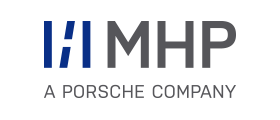How to Build a $100 Smart Robot Powered by ML.NET, IoT Libraries, and Raspberry Pi ---

I know there are thousands of projects about building robots, but I’m talking about really simple robots with some moving parts and AI. We’ve seen them programmed with Python, C, Java, but what about .NET?
It has been 6 years now since Microsoft launched .NET Core and we got access to new platforms like Linux, Mac or ARM. There are 6 million .NET developers around the globe. Most of them will be more than happy that they don’t have to deal with integration pain anymore when trying to integrate machine learning, deep learning and the IoT functionality.
Road to Deadlocks - Article

In this article you will understand what isolation levels are in SQL Server, what the locking and blocking mechanism is about, what a deadlock is, and how to capture and prevent a deadlock in SQL Server.
The **deadlock** is a situation when two or more processes are waiting for each other to finish due to locking, leading to an **infinite waiting**, which means that neither of them can progress anymore.
The Art of DevOps

Whether you’re new to agile development, completely at home in a DevOps environment or dipping your toe into CI/CD, sometimes it’s worth taking a moment to consider how application development got to where it is today.
In the beginning (80s and 90s) the most popular/used development methodology (the method by which the software gets ready to release) was the Waterfall method. This represents a strictly sequential structure in which teams embarked onto the next development phase only after the previous one had been completed.
 Terezia Neagu Senior Product Executive @ Betfair Romania Development
Terezia Neagu Senior Product Executive @ Betfair Romania Development
Product Management – Launch your product idea using Lean Canvas – Cat Cafe

Working in the product world, we all aspire to launch our own product one day. Maybe we already have that "big" product idea, but we do not know from where to start. Sometimes the challenge is to choose and apply a specific technique for this purpose. However, before engaging in the process of launching a new product, the product can either fail or succeed. However, n matter of the outcome, we already won the "game" just by making the attempt of introducing a new product into the market. There are various frameworks we could use to manage a product and Lean Canvas is one of the easiest and most insightful ways we could do this.
Kubernetes : the runtime for AI

Having an AI solution, beyond any software and techniques, is about time spent in obtaining meaningful results, and time translates into hardware requirements and management. These requirements may vary depending on the task at hand. In some cases, a model can be trained on a single CPU/GPU machine, while in other cases you will need a highly scalable infrastructure to cope with the load that can be either influenced by the amount of data, or the techniques used to train the model. Having an infrastructure that can quickly adapt to the load is essential in getting the results, and this is precisely what Kuberneetes is all about.
Minting my own business

In 1977, humanity sent the Voyager 1 probe into an interstellar journey carrying with it some of our memories, wishes and aspirations carefully encrypted on a golden disk. Chances are that the information on that disk will last more than any other record on the surface of the earth: our closest aspiration to immortality. It also signals something else: it is ours, earth-made, carrying our signature. Immortality and ownership — the two powerful forces shaping the destiny of our society since forever have now merged with technology.
Interview with Mark Seemann

Congratulations for your latest book, Code That Fits in Your Head: Heuristics for Software Engineering! A lot of great software engineers like Robert C. Martin, Kevlin Henney, Adam Ralph and may others are saying good words about it in the preface. It also makes me happy to see a such “family” and I think we might contribute also due to conferences like IT Days or The Developers.
Roslyn Source Generators

When using machine learning, the central point is the machine learning model. Whether you train your own machine learning model or you get one to consume in your production code, you have to know some insights about how it was trained, like the label (or target feature), the data models (input and output), and the scenario that was used for training. Along with these details, it’s very important to know the accuracy of your machine learning model. You can have tools like MLOps to take care of these details, but maybe you don’t.
 Liviu-Vasile Pop Embedded Software Engineer @ Bosch Engineering Center Cluj
Liviu-Vasile Pop Embedded Software Engineer @ Bosch Engineering Center Cluj
 Mihai Souca Embedded Software Engineer @ Bosch Engineering Center Cluj
Mihai Souca Embedded Software Engineer @ Bosch Engineering Center Cluj
@
 Rudolf Mate Embedded Software Engineer @ Bosch Engineering Center Cluj
Rudolf Mate Embedded Software Engineer @ Bosch Engineering Center Cluj
@
Electric Power Steering Systems: The now and the future

When someone thinks of buying a car, the first aspect taken into consideration is the body. Some want an SUV that will take them to the highest mountain peaks, some want a small car that can get through the smallest streets and fit into the tightest parking spots. Then, the next important aspects are the features that the car has: heated seats, parking sensors, cruise control and so on... but these are things that you can check online, reading a spec sheet. The aspect that really makes you buy the car is getting in the driver's seat and taking it for a drive. And here, we all must agree that the steering system plays a key role. Nowadays, most cars use an Electric Power Steering (EPS) that facilitates the driver in doing the steering maneuvers.
JVM performance insights

The Java Virtual Machine was initially perceived as slow. However, since the 90’s it has had time to evolve and mature its ecosystem, platform and the JVM itself. Being very popular, it is only natural that good tooling develops around it. Choosing Java as a language or the JVM as a platform brings way more advantages than only “running anywhere”.
VIDEO: ISSUE 109 LAUNCH EVENT
VIDEO: ISSUE 109 LAUNCH EVENT
Design contribution










































